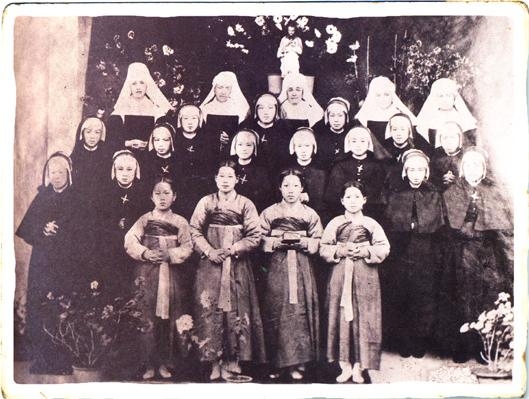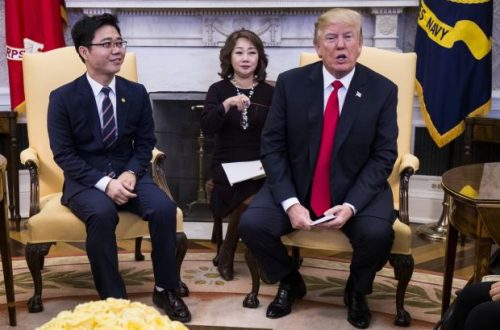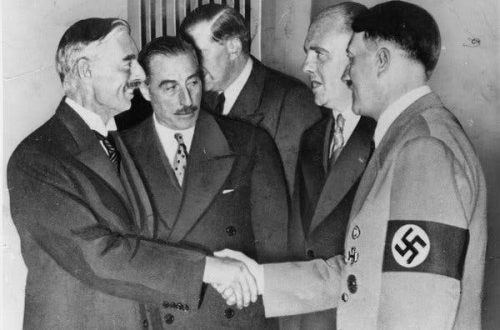THIS IS A CROSS-POST FROM A RABBIT’S EYE VIEW OF THE HYPERBOREAN NORTH.
North Korea has ceased to be a Communist state having, in the 1982 revision of the constitution, formally adopted the Juche ideology: a bastardized form of Buddhist philosophy, chthonic animism and Christian social egalitarianism. Even individuals like Hwang Jang-yop, the highest-ever defector from the DPKR, continue to express their belief in the core values of this pseudo-religion (which Hwang helped codify).
The influence of Christianity, and Protestantism specifically, became firmly established in the Korean peninsular from the 1880s onwards. Helped by the fact that it was a non-Christian country which colonized the region, this religion did not acquire the negative associations as seen in other East Asian societies.
At the time, Pyongyang was a principal industrial centre and entrepôt for the peninsular, and the first Christian mission was established in 1890 by an American Presbyterian missionary, Samuel A. Moffett. Within a couple of decades, the city had been dubbed the Jerusalem of the East because of an proselytising rate which rivalled, and often surpassed the Revivals seen in any named culturally Christian society.
The emerging university-educated and middle-classes came to associate the various iterations of this new religion with the welcome arrival of modernity. Kim Sung-il himself was born into a family of influential Protestant activists, so maybe the Juche ideology can be seen as a Christian heresy: longer lasting than Hong Xiuquan’s belief, in 1860s China, that he represented the First Coming of the Second Son; if not less bloody.
The Protestant work-ethic would have concentrated significant amounts of material wealth amongst Christian families (although, unlike Scotland of the same period, Roman Catholics also acquired jobs), which would have gone down like a Roman Catholic draughtsman at D.C. Thompson with the arrival of Marxism and Maoism not to mention the open assistance given to advancing U.N troops by Korean Christians (whilst Hewlett Johnson, safe in Blighty, was redirecting his love to Mao and Kim Song-il following the denouncement of Christianity by his previous l’objet de l’amour).
(Robert Koehler wrote about the Young Nak Presbyterian church in Seoul which was founded by refugees following the Communist take-over of the DPRK in 1945.)
At the time of the ceasefire in July 1953, it was estimated that there were 200,000 Roman Catholics alone north of the 38th Parallel. Now, there are fewer than 200 of that denomination; with only one recognized Roman Catholic church, and two Protestant churches (all in Pyongyang). It should be noted that Buddhism fares just as badly, with only four recognized temples (again, only in Pyongyang).
Despite, as would be more likely in such heavily oppressed populations, the estimated 30,000 catacomb Christians being primarily interested in rendering to God only what is God’s, the high-priests of the Juche religion are merciless in their pursuit of errant faiths.
Last year, a Korean mother-of-three by the name of Ri Hyon-ok was publically executed for the distribution of Bibles and other Christian literature, which Pyongyang’s incipient paranoia also associated with spying for Seoul and Washington D.C.
New reports state that in May of this year, dozens were arrested following the break-up of a catacomb church in Pyongan Province; and three poor wretches met the same fate as Ri. The remainder are reported to have been dispatched to the No. 15 Concentration Camp at Yodok.
Other reports have stated that other Christians have been executed by having steamrollers driven over them.
Christians, like everyone in the DPRK are on their own. God help them all.


